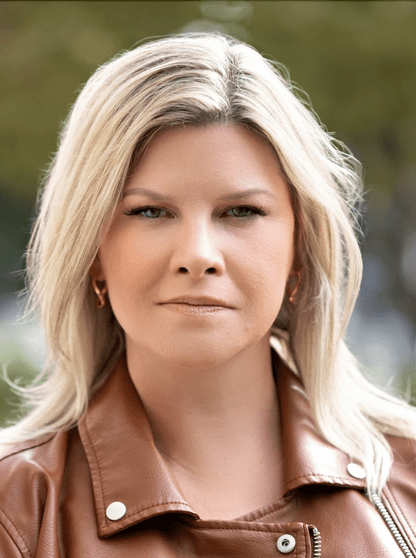Ritual Scapegoating vs. Divide-and-Conquer: The Role of Fed-Prov in Provincial Election Season

November 4, 2024
We are in the middle of election season. British Columbia, Saskatchewan, and New Brunswick have all had provincial elections in the past month and Nova Scotia is currently in campaign mode. Doug Ford is rumoured to be eyeing an early election in the spring of 2025, at least a full year before the scheduled fixed date of June 2026. Justin Trudeau’s name is not on the ballot in any of these elections, of course, but he is a main character in every one of them. He’s become the “bad guy” of provincial politics – the person to blame when voters are unsatisfied.
This is not really a Trudeau-specific phenomenon. It is a time-honoured tradition in Canadian politics for premiers to scapegoat Ottawa for pretty much everything that goes wrong. When the cupboards are bare, and programs and services suffer as a result, it’s not because of any mismanagement or misaligned priorities on the part of the province; it’s because the feds are being tight with money.
This political dynamic is a byproduct of the fiduciary role played by the federal government in the context of Canadian federalism. The federal spending power allows Ottawa to spend money where it wants to, including outside the constitutional parameters of federal jurisdiction. The federal spending power is like a key that unlocks the door to areas of provincial responsibility. Though the federal government cannot legislate in these areas, it can spend in them. Therefore, it can use its fiscal capacity to essentially bribe the provinces into implementing federal priorities.
For what it’s worth, the blurring of lines with respect to the constitutional division of powers makes it very difficult for voters to hold governments to account for their action – or inaction – in matters of policy, including heath care, climate protection, and housing. Governments play hot potato with complex problems while voters hope for solutions. Provincial premiers end up ganging up on the prime minister to press for increased health transfers and other forms of support, often using press conferences at meetings of the Council of the Federation as opportunities to draw the public’s attention to Ottawa’s absenteeism on matters that need attention.
Again, while this general scenario is nothing new, there are reasons why intergovernmental relationships are particularly tense for the current Liberal government. First, Prime Minister Trudeau’s priorities tend to fall disproportionately into areas of provincial jurisdiction. He is very active in social policy, including childcare and benefits, health care, and pharmacare, while being roundly criticized for being consistently neglectful of foreign policy, a federal responsibility. His regular encroachment into provincial-policy territory has created resentment on the part of provincial premiers. As Ontario Premier Doug Ford remarked succinctly at the Council of the Federation meeting in July of 2024: “the premiers get pissed.”
If Pierre Poilievre becomes the next prime minister, he’ll be a bad guy for the provinces too – but in a different way.
Second, Prime Minister Trudeau has taken a “divide and conquer” approach to dealing with the premiers. As has been the case with most PMs in the face of the dynamic described above, he does not like to meet them as a group but instead, prefers to sit down with each premier separately to hammer out a strategy for their province’s participation in a given federal program. For example, in bringing provinces on board with the federal Early Learning and Child Care program, Trudeau negotiated individually with each premier regarding how the province would meet federal criteria in order to access funds to create more public, not-for-profit childcare spaces. This approach allows Trudeau to isolate and amplify the benefits of photo-ops with individual provincial premiers, who are supposed to be thankful for federal help. Further, it reinforces the sense that this is a federal program rather than a product of intergovernmental cooperation. This adds to provincial frustrations with the prime minister.
Third, Trudeau is terribly unpopular. This makes it easier for provincial premiers of all political stripes to make him the villain. Large swaths of the public are blaming him already, for everything from the affordability crisis to the weather. His personal unpopularity is seen as such a hazard for the Liberal brand that, in New Brunswick last week, Liberal leader Susan Holt defeated incumbent Blaine Higgs to form a majority government without mentioning Trudeau at all. This is a far cry from the early days of Trudeau’s leadership, when he was considered a rockstar and an asset to Liberals across the country.
If Pierre Poilievre becomes the next prime minister, he’ll be a bad guy for the provinces too – but in a different way. Rather than involve himself in areas of provincial jurisdiction, Poilievre would likely retreat towards a more literal interpretation of the constitutional division of powers that would bear resemblance to the “open federalism” doctrine embraced by his former boss, Stephen Harper.
This development might be welcome by Alberta Premier Danielle Smith, who openly longs for the federal government to mind its own business. But most if not all provincial premiers, even while they protest Trudeau’s intrusions, depend on federal involvement both for financial reasons and because the ability to pass the political buck to Ottawa is politically helpful to them.
A prime minister Poilievre would be more likely to expect premiers to handle their own responsibilities with less federal involvement. And he won’t mind being called the bad guy at all.
Policy Columnist Lori Turnbull is a professor in the Faculty of Management at Dalhousie University.
